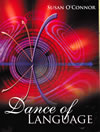Successful Listeners: Listening/Thinking/Learning
 Successful listeners consciously or unconsciously ask silent questions
when they are sitting in class listening to a teacher. They have learned
to pose these questions and wait for the answers. If they don’t hear what
they need to know, they ask these questions of the teacher either during
or after class. Students who want to take charge of their learning rather
than leave it to chance
begin by taking stock of what they know and acting on what they don’t. Adam Robinson, author of
What Smart Students Know as well as a number of successful guides for the SAT and other popular standardized tests,
outlines twelve of these basic questions that students who want to get ahead ask:
Successful listeners consciously or unconsciously ask silent questions
when they are sitting in class listening to a teacher. They have learned
to pose these questions and wait for the answers. If they don’t hear what
they need to know, they ask these questions of the teacher either during
or after class. Students who want to take charge of their learning rather
than leave it to chance
begin by taking stock of what they know and acting on what they don’t. Adam Robinson, author of
What Smart Students Know as well as a number of successful guides for the SAT and other popular standardized tests,
outlines twelve of these basic questions that students who want to get ahead ask:
- Why am I learning this information?
- What do I already know about it?
- How does this lesson fit in to the big picture of this area of knowledge?
- Where is the teacher going with this information?
- What question seems to repeat itself in my mind throughout the lesson that needs to be answered right away?
- Who, what, where, when, why, and how about the lesson need answering, then these questions: So what? Says who? What if?
- What does this remind me of?
- What seems to be important here?
- How can I summarize what the teacher is saying?
- How should I organize this information? Are there distinct categories and subtopics?
- How can I think of this information graphically, in pictures? What would I draw?
- What hook or gimmick could I use to remember this information?
- How does this information relate to what I already know about the topic?
Most of the time listeners are thinking about the answers to these questions so quickly that they don’t realize they’ve even asked the question. When students decide that they truly want to learn, they have the desire to focus and learn; they simply need the tools to do so. When students understand that many of the unknowns about the teacher’s lesson must be addressed for understanding to take place, they automatically begin the series of questions that prompt the rapid fire answers.
 Learning is not about genius or having all the information. It’s about NOT having all the facts and skills and doing something about it.
You can be led out of Plato’s cave only if you are willing to go, and that person leading you out could even be you.
Learning is not about genius or having all the information. It’s about NOT having all the facts and skills and doing something about it.
You can be led out of Plato’s cave only if you are willing to go, and that person leading you out could even be you.
